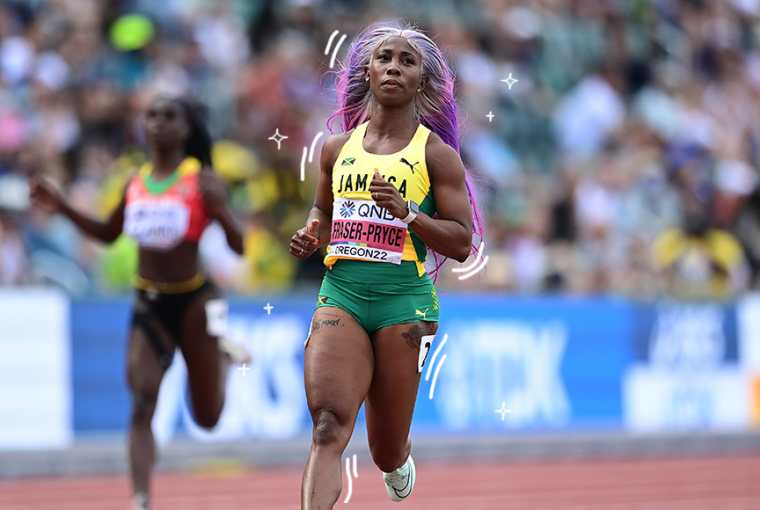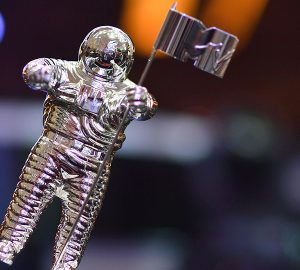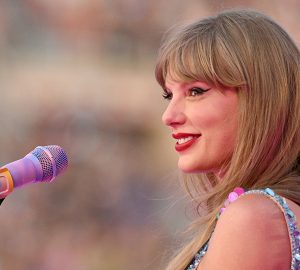[ad_1]
Athletes believe that a strong core is a foundation for a strong body, and that same philosophy applies when it comes to your scalp being the foundation for strong, beautiful hair. Products infused with natural, soothing ingredients, like aloe butter, shea butter, and vitamin B3, simultaneously benefit your scalp, while supporting healthy hair. Jamaican Track and Field Olympian, Shelly-Ann Fraser-Pryce, understands the hair-scalp connection. “My hair and scalp are just as important as any other part of my body,” she says. “Every day, I brush my teeth, wash my face, moisturize my skin, and I make sure I give my hair love before I start the day. For Black women especially, the way your hair looks or feels can affect your whole day.”
Hair plays a major role in an athlete’s day-to-day life more than one would think. The switch-up between braids, wigs, weaves, ponytails, and other styles with little to no downtime can be taxing on the hair and even more so on the scalp. People may be under the assumption that female athletes wear these low-maintenance styles because they don’t care about their hair, but quite the contrary, these styles protect their natural hair so they can confidently perform without worrying about damaging it. “Athletes have less freedom with hairstyles than most people,” says Fraser-Pryce. “We undergo a lot of vigorous movement that is not ideal for certain looks. Wigs have been a saving grace because I can keep my hair nourished and cut back on manipulation while being able to show up looking the way I want. My wigs allow me to be creative while maintaining healthy hair underneath.”
Long gone are the days of coily and curly head girls having to “grease” their scalps with pore-clogging pomades to control and maintain hair. Your scalp is skin; therefore, it needs to be treated with care by using the right cleansers and moisturizers specific to your needs. With new advancements in hair care, you can easily tackle issues like dryness, flaking, build-up, or an itchy scalp. “Different types of shampoos achieve a variety of purposes – a clarifying shampoo helps to remove large amounts of build-up and excess oil to give the hair/scalp a “squeaky” clean; moisturizing shampoos clean just enough without stripping the hair while leaving behind moisturizing and conditioning properties; then there are anti-dandruff shampoos that use active ingredients like salicylic acid that have anti-fungal and anti-bacterial properties to specifically target the cause of dandruff,” says Cosmetic Scientist and SheaMoisture Partner, Erica Douglas, Sister Scientist.
To stay on the right track when choosing hair care products, be a “label girl.” Products that include nutrient-rich additives like Aloe Butter, Vitamin B3, Apple Cider Vinegar, and Salicylic Acid, have been formulated to gently treat your scalp while conditioning your hair. “You should look for ingredients like proteins, amino acids, vitamins, and extracts because these can be very helpful to aiding in the repair and strengthening of damaged hair,” says Douglas.
Shelly-Ann Fraser-Pryce who grew up using natural products adds, “In Jamaica, we’re used to getting everything straight from the earth, so I prefer all-natural ingredients. The more potent the ingredients, the more effective it is. Everyone is checking the back of the bottle, to ensure products are not only working for them now but will continue to during their hair journey.”
Douglas gives us a better understanding of hair care by explaining how shampoos are supposed to work. “Shampoos are inherently designed to cleanse your scalp and hair by removing dirt, excess oil, build-up, and other impurities,” she says. “However, what makes shampoo different than, let’s say dish detergent, are the conditioning, and moisturizing properties that are incorporated into the formulation to ensure that the hair isn’t stripped too much of its natural oils. A good shampoo will effectively clean the hair and scalp, but leave the hair conditioned enough to prevent severe tangling, breakage, and dehydration.”
When searching for ingredients there are the ones we know, and then there are the ones we can’t pronounce, but these compounds are just as critical when it comes to choosing quality products. “Ingredients can include natural oils, quaternary ammonium cationic compounds (or conditioning quats for short), polymers, proteins, and more,” says Douglas. “Without these ingredients, you would just be washing your hair with dish soap, and I think we can all agree that your hair is much more precious to take care of than your Tupperware.”
When it comes to your hair and scalp care, be “all in” with your ingredients like an athlete. Make a commitment to choosing products that contain B3 vitamins, ceramides, shea butter, aloe butter, and the right compounds because good scalp care is at the root of keeping your hair healthy, and strong enough to last a lifetime. “A woman’s hair is her crown, so we must be delicate and make sure we’re giving it our best,” says Fraser-Pryce.
[ad_2]







